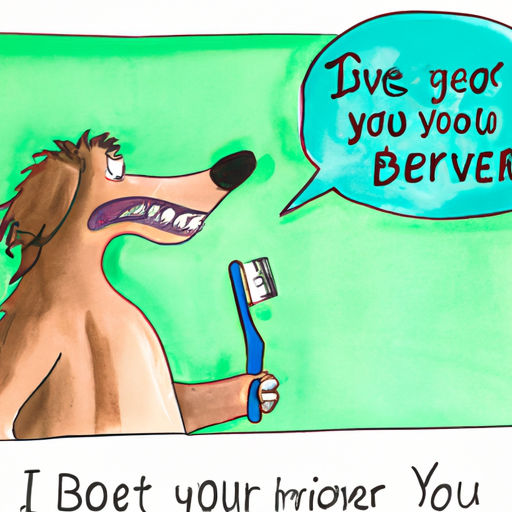As a devoted caregiver for your canine companion, I know you want the very best for them. That includes maintaining their oral health. So, let’s delve into this engaging guide on how to improve your dog’s breath.
1. Dental Hygiene: The Essential First Step
Just as with humans, oral hygiene plays a pivotal role in a dog’s overall health. Neglecting this aspect can result in bad breath and more serious dental diseases.
- Brushing: Get into the habit of brushing your dog’s teeth daily. Use a canine-specific toothpaste and a soft brush for this purpose.
- Dental Chews and Toys: These can serve as supplementary tools for teeth cleaning, helping to scrape off plaque and tartar.
| Dental Hygiene Tools | Frequency of Use |
|---|---|
| Toothbrush | Daily |
| Dental Chews | As recommended by vet |
| Dental Toys | Regularly, under supervision |
2. Diet: The Gateway to Fresh Breath
What your dog consumes has a direct impact on their breath.
- Quality Dog Food: Opt for high-quality, balanced dog food that does not contain artificial colors or preservatives.
- Probiotics: These beneficial bacteria can aid digestion and improve the overall gut health, leading to better breath.
3. Regular Vet Checkups: Prevention is Better Than Cure
Don’t underestimate the importance of routine vet checkups. Regular professional dental cleanings can detect potential issues before they turn into major problems.
4. Hydration: The Unsung Hero
Keeping your dog well-hydrated can significantly improve their oral health. Water helps wash away food particles and bacteria that can cause bad breath.
5. Home Remedies: Nature’s Little Helpers
Several natural remedies can freshen your dog’s breath.
- Parsley: Sprinkle chopped parsley over your dog’s food.
- Coconut Oil: Add a teaspoon of coconut oil to their meal.
- Carrots: These crunchy veggies act as a natural toothbrush, scraping off plaque and tartar.
Frequently Asked Questions (FAQs)
- Q: How often should my dog have a vet checkup?
A: At least once a year, but more frequently for senior dogs or dogs with health issues.
- Q: Can I use human toothpaste for my dog?
A: No, human toothpaste contains ingredients that can be harmful to dogs.
- Q: Are there any specific dog breeds prone to bad breath?
A: Smaller breeds are often more prone to dental diseases, which can result in bad breath.
Now that you’re equipped with this knowledge, don’t just stop at reading. Put these tips into practice and ensure your dog’s breath stays as delightful as their wagging tail!



